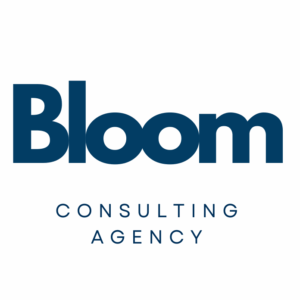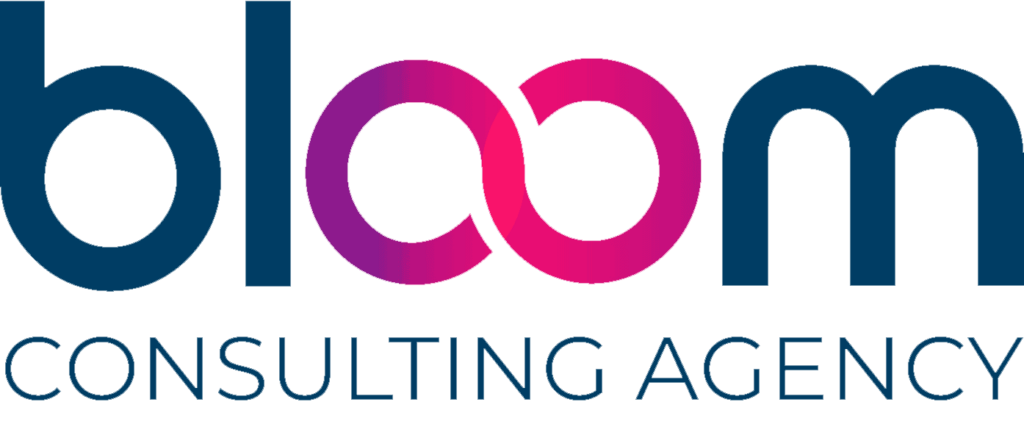Table of Contents
The Critical Impact of Denied Claims on Healthcare Revenue
In today’s complex healthcare landscape, effectively addressing denied claims is essential for maintaining financial stability across all medical specialties. Whether you’re outsourcing medical billing, mental health billing, behavioral health billing, or addiction treatment billing, denied insurance claims represent one of the most significant threats to your practice’s revenue cycle.
Healthcare providers lose billions annually due to improperly managed common claim denials. However, with the right strategies, billing optimization, and proper resubmission techniques, practices can recover 60-90% of their denied claims revenue.
Understanding Denied Claims Across Healthcare Specialties
What Are Denied Claims?
Denied claims are medical insurance claims submitted by healthcare providers that insurance companies reject for payment. When a claim is denied, providers don’t receive reimbursement, and the financial responsibility may shift to the patient or require appeal processes. Learn more about the benefits of outsourcing your medical billing here and see if it is right for your healthcare practice.
Common Denial Reasons by Specialty:
Medical Billing Denials:
- Incorrect patient demographics
- Invalid CPT or ICD-10 codes
- Lack of medical necessity documentation
- Prior authorization requirements not met
- Duplicate claim submissions
Mental Health & Behavioral Health Billing Denials:
- Missing treatment plans or clinical documentation
- Inadequate progress notes
- Frequency limitations exceeded
- Provider credentialing issues
- Substance abuse exclusions
Addiction Treatment Billing Denials:
- Medical necessity not established
- Level of care justification insufficient
- Missing psychosocial assessments
- Treatment duration limitations
- Residential vs. outpatient coding errors
Step-by-Step Process for Effectively Addressing Denied Claims
Phase 1: Denial Identification and Analysis
Step 1: Systematic Denial Tracking
- Log every denied claim within 24 hours of receipt
- Categorize by denial reason code
- Document claim value and submission date
- Assign priority levels (High: >$1,000, Medium: $500-$1,000, Low: <$500)
Step 2: Root Cause Analysis
- Review denial patterns monthly
- Identify provider-specific issues
- Analyze payer-specific trends
- Document systemic problems requiring workflow changes
Phase 2: Appeals Preparation and Documentation
Step 3: Gather Supporting Documentation
- Clinical notes and treatment records
- Prior authorization documentation
- Medical necessity justification
- Provider credentialing verification
- Patient eligibility confirmation
Step 4: Appeal Letter Preparation
- Reference specific denial reason codes
- Provide clinical rationale
- Include relevant medical literature
- Attach all supporting documentation
- Follow payer-specific appeal formats
Practical Example: Resubmitting a Behavioral Health Denied Claim Using CollaborativeMD
Scenario: Denied Mental Health Therapy Claim
Original Claim Details:
- Service: Individual Psychotherapy (CPT 90834)
- Diagnosis: Major Depressive Disorder (F32.9)
- Date of Service: March 15, 2025
- Denial Reason: “Medical necessity not established”
Comprehensive Step-by-Step Resubmission Process in CollaborativeMD
Successfully resubmitting denied claims requires a systematic approach that ensures accuracy and completeness. The following detailed process maximizes your chances of successful claim resolution while maintaining proper documentation standards.
Step 1: Efficiently Accessing Your Denied Claim
Begin by logging into your CollaborativeMD dashboard through the secure portal. Next, navigate directly to the “Claims Management” section. Then, select “Denied Claims” from the dropdown menu options.
Additionally, filter results by your desired date range and specific payer. This filtering streamlines your search process significantly. Finally, locate your specific denied claim using the reference number (Claim #MH-2025-0315-001).
Step 2: Thoroughly Reviewing Denial Details
First, click on the claim number to access the detailed view. Subsequently, review the attached EOB (Explanation of Benefits) document carefully. This document contains critical denial information and are common trends in medical billing.
Moreover, note the specific denial code provided by the payer. In this example, code CO-50 indicates “Medical necessity not met.” Furthermore, check all original documentation that was initially submitted. This review helps identify missing elements.
Step 3: Strategically Preparing Your Corrected Claim
Initially, click the “Create Corrected Claim” button in the system. Then, select “Medical Necessity Appeal” from the available dropdown options. This selection categorizes your appeal appropriately.
Additionally, update the claim with frequency code “22” to indicate resubmission. This code alerts the payer to your corrected submission. Consequently, proper coding prevents processing delays.
Step 4: Comprehensively Uploading Enhanced Documentation
First, navigate to the “Documents” tab within the claim interface. Then, systematically upload your enhanced clinical documentation package. Each document serves a specific purpose in your appeal.
Treatment Plan documentation should include detailed 30/60/90-day goals with measurable outcomes. Progress Notes must demonstrate session-by-session improvements and patient engagement.
Similarly, Assessment Tools such as PHQ-9 scores provide objective evidence of symptom reduction. Finally, include a comprehensive Medical Necessity Letter with the provider’s detailed clinical justification.
Step 5: Meticulously Completing the Corrected Claim Form
Begin by entering all patient demographic information accurately. Then, verify insurance details and member identification numbers. Accuracy in this section prevents additional processing delays.
Next, input the correct CPT codes and corresponding diagnosis codes. Subsequently, include appropriate modifier codes when necessary. These codes must align with your enhanced documentation.
Moreover, complete the medical necessity section with detailed clinical information. This section should reference your uploaded supporting documents. Furthermore, include relevant treatment duration and frequency justifications.
Step 6: Conducting Final Quality Assurance Review
Initially, review all entered information for accuracy and completeness. Then, verify that all supporting documents are properly attached. Cross-reference denial codes with your corrected information.
Additionally, confirm that frequency codes and resubmission indicators are properly marked. Subsequently, check that medical necessity documentation addresses the original denial reason. Finally, ensure compliance with payer-specific formatting requirements.
Step 7: Successfully Submitting Your Enhanced Appeal
First, click the “Submit Corrected Claim” button to process your appeal. Then, print the confirmation receipt for your permanent files. This receipt provides proof of submission.
Moreover, set automated follow-up reminders for 14 business days post-submission. Additionally, document the resubmission in your patient’s chart notes. Finally, prepare for potential peer-to-peer review requests from the payer.
Step 8: Implementing Proactive Follow-Up Protocols
Initially, monitor claim status through the “Pending Claims” dashboard regularly. Then, track processing timeframes according to payer guidelines. Most appeals require 30-45 days for resolution.
Furthermore, maintain open communication channels with payer representatives when necessary. Additionally, prepare additional documentation if requested during the review process. Consequently, proactive follow-up improves resolution success rates significantly.
Advanced Denial Prevention Strategies Tailored to Healthcare Specialties
Successful denial management extends beyond reactive claim processing to encompass proactive prevention strategies that address the unique challenges faced by different healthcare specialties. By implementing specialty-specific approaches, healthcare organizations, such as hospital revenue cycle management systems or behavioral health clinics, can significantly reduce denial rates while improving overall revenue cycle performance and patient satisfaction.
Medical Billing Optimization Through Technology and Process Enhancement
Medical practices seeking to minimize claim denials must focus on prevention strategies that address the most common causes of rejections in general healthcare settings. First and foremost, implementing real-time eligibility verification ensures that patient insurance coverage and benefit limitations are confirmed before services are rendered, thereby eliminating up to 40% of denials related to eligibility issues and coverage exclusions.
Subsequently, practices benefit tremendously from using AI-powered coding suggestions that analyze clinical documentation and recommend appropriate CPT and ICD-10 codes based on documented services and diagnoses. These intelligent systems reduce coding errors by 65% while improving coding consistency across multiple providers and ensuring optimal reimbursement for services rendered.
Additionally, establishing prior authorization workflows creates systematic processes for identifying services that require pre-approval and ensuring that all necessary authorizations are obtained before patient appointments. This proactive approach prevents costly denials and reduces patient frustration while streamlining the administrative burden on clinical staff.
Furthermore, regular coding audits and staff training maintain high standards of accuracy and compliance through quarterly internal reviews and monthly educational sessions. These ongoing quality assurance measures help identify emerging trends in coding errors and ensure that billing staff remain current with evolving regulatory requirements and payer policies.
Mental Health Billing Excellence Through Clinical Documentation Enhancement
Mental health practices face unique challenges related to medical necessity documentation and treatment justification that require specialized denial prevention strategies. Most importantly, standardizing treatment plan documentation through comprehensive templates and clinical decision support tools ensures that all required elements are consistently included in patient records, thereby reducing medical necessity denials by up to 50%.
Moreover, implementing outcome measurement tools such as PHQ-9 depression scales, GAD-7 anxiety assessments, and functional improvement measures provides objective evidence of treatment effectiveness that supports medical necessity appeals and demonstrates patient progress to payers. These standardized assessments strengthen clinical documentation while improving patient care outcomes.
In addition, establishing medical necessity templates for different therapeutic modalities and diagnostic categories streamlines the documentation process while ensuring that all payer requirements are consistently met. These templates reduce documentation time by 30% while improving the quality and completeness of clinical justifications for mental health services.
Consequently, regular clinical documentation reviews conducted by qualified clinical staff ensure that treatment plans remain current, progress notes adequately support continued treatment, and medical necessity criteria continue to be met throughout the course of care. These systematic reviews prevent denials related to insufficient documentation while supporting quality improvement initiatives.
Behavioral Health & Addiction Treatment Through Comprehensive Assessment and Integration
Addiction treatment centers and behavioral health facilities require specialized strategies that address the complex clinical and regulatory requirements specific to substance abuse and behavioral health services. Primarily, level of care assessment protocols ensure that patients are placed in the most appropriate treatment setting based on standardized criteria such as ASAM (American Society of Addiction Medicine) guidelines, thereby preventing denials related to inappropriate level of care determinations.
Similarly, continuous treatment planning updates maintain current and relevant treatment goals that reflect patient progress and changing clinical needs throughout the treatment process. This dynamic approach to treatment planning ensures that services remain medically necessary and appropriate while supporting positive patient outcomes and payer satisfaction.
Additionally, comprehensive psychosocial documentation captures all relevant psychosocial factors that influence treatment planning and medical necessity determinations, including family history, social support systems, employment status, and co-occurring mental health conditions. This thorough documentation approach significantly reduces denials related to incomplete assessments or insufficient clinical justification.
Finally, integration with medical records ensures that behavioral health treatment plans coordinate effectively with primary medical care and other healthcare services, creating a comprehensive picture of patient needs that supports medical necessity requirements. This integrated approach demonstrates the interconnected nature of behavioral health and medical care while strengthening appeal documentation for disputed claims.
Measuring Success Across All Specialties
Regardless of healthcare specialty, successful implementation of these advanced strategies requires systematic measurement and continuous improvement. Organizations that implement specialty-specific denial prevention strategies typically achieve:
- 30-50% reduction in overall denial rates within the first six months
- 25-35% improvement in first-pass claim acceptance rates through enhanced documentation
- 40-60% decrease in appeals processing time due to stronger initial documentation
- 15-25% increase in net collection rates through improved revenue recovery
These measurable improvements demonstrate the significant return on investment available through specialty-focused denial prevention strategies that address the unique challenges and opportunities within different healthcare practice environments.
Technology Solutions for Denial Management
Recommended Practice Management Systems:
- CollaborativeMD: Excellent for behavioral health practices
- AdvancedMD: Strong medical billing features
- Kareo: User-friendly for small practices
- Epic: Enterprise-level integration
Essential Features for Effective Denial Management Software
When selecting denial management software for your healthcare practice, certain key features are critical for optimizing your claims resolution workflow. First and foremost, automated denial tracking capabilities ensure that no denied claims fall through the cracks by systematically capturing and categorizing every rejection within your system. This automation eliminates the manual process of logging denials and reduces human error by up to 75%.
Additionally, built-in appeal templates streamline the resubmission process by providing standardized formats for different denial reasons and payer requirements. These templates not only save valuable staff time but also ensure consistency in your appeals process, which can significantly improve your success rates with insurance companies.
Furthermore, real-time claim status updates provide immediate visibility into your claims pipeline, allowing your billing team to track progress from submission through payment or denial. This real-time functionality enables proactive management of potential issues before they become costly delays in your revenue cycle.
Moreover, comprehensive reporting dashboards offer analytical insights that transform raw denial data into actionable intelligence. These dashboards help identify denial patterns, track key performance indicators, and measure the effectiveness of your denial management strategies across different providers and payers.
Finally, seamless integration with EMR systems creates a unified workflow that connects clinical documentation directly to your billing processes. This integration ensures that medical necessity documentation and clinical notes are readily available during the appeals process, while also reducing duplicate data entry and improving overall operational efficiency.
Performance Metrics and KPIs
Essential Denial Management Metrics:
- Denial Rate: Target <5% for medical, <8% for behavioral health
- Days in AR: Target <30 days for clean claims
- Appeal Success Rate: Target >70% for first-level appeals
- Time to Resolution: Target <45 days from denial to payment
Monthly Reporting Structure:
- Total denials by reason code
- Denial trends by payer
- Staff productivity metrics
- Revenue recovery rates
- Patient satisfaction scores
Regulatory Compliance and Best Practices
HIPAA Compliance in Denial Management:
- Secure documentation storage
- Limited access to patient information
- Audit trails for all claim activities
- Staff training on privacy requirements
Payer-Specific Requirements:
- Medicare: 365-day filing limit
- Medicaid: Varies by state (90-365 days)
- Commercial: Typically 90-180 days
- Behavioral health carve-outs: Special requirements
Building an Efficient Denial Workflow Team for Maximum Revenue Recovery
Creating a successful denial management program requires assembling a dedicated team with clearly defined roles and comprehensive training protocols. The most effective healthcare organizations recognize that denial management is not a one-person job, but rather a collaborative effort that demands specialized expertise across multiple disciplines.
Essential Team Roles for Optimal Performance
To begin with, the Denial Manager serves as the cornerstone of your denial workflow team, overseeing the entire process from initial denial identification through final resolution. This leadership role ensures accountability, maintains workflow consistency, and coordinates communication between all team members and external payers. The Denial Manager also establishes performance metrics and monitors team productivity to ensure optimal revenue recovery rates.
Subsequently, the Clinical Documentation Specialist plays a critical role in reviewing medical necessity documentation and ensuring that clinical records support the services billed. This specialist bridges the gap between clinical care and billing requirements, working closely with providers to enhance documentation quality and reduce future denials related to medical necessity issues.
In addition, the Appeals Coordinator handles the technical aspects of claim resubmissions, managing appeal deadlines, preparing corrected claims, and ensuring that all required documentation accompanies each appeal. This role requires detailed knowledge of payer-specific requirements and strong organizational skills to track multiple appeals simultaneously across different insurance companies.
Furthermore, the Follow-up Specialist maintains continuous monitoring of claim status throughout the appeals process, proactively communicating with payers and internal stakeholders about claim progress. This specialist ensures that no appeals expire due to lack of follow-up and maintains detailed records of all payer interactions for future reference.
Finally, the Quality Assurance Analyst monitors overall team performance, identifies process improvement opportunities, and ensures compliance with regulatory requirements. This role involves analyzing denial patterns, measuring appeal success rates, and implementing corrective actions to prevent recurring issues that impact revenue recovery.
Comprehensive Staff Training Requirements for Success
Beyond assembling the right team structure, ongoing education is essential for maintaining peak performance in denial management. First and foremost, monthly coding updates ensure that all team members stay current with the latest CPT, ICD-10, and HCPCS code changes that directly impact claim accuracy and reimbursement rates. These regular updates prevent coding-related denials and keep the team informed about new billable services.
Additionally, training on payer policy changes keeps the team informed about evolving insurance requirements, coverage limitations, and documentation standards that vary significantly between different insurance companies. This knowledge enables proactive adjustment of billing practices to prevent denials before they occur.
Moreover, documentation best practices training ensures that all team members understand the clinical and administrative documentation standards required for successful claim processing. This training covers medical necessity requirements, progress note standards, and treatment plan documentation that supports reimbursement across all healthcare specialties.
Furthermore, software system training maintains proficiency with practice management systems, EMR integration, and denial tracking tools that form the technological backbone of efficient denial workflows. Regular training ensures that team members can leverage all available features to maximize productivity and accuracy.
Finally, compliance requirements training ensures that all denial management activities adhere to HIPAA regulations, state insurance laws, and payer-specific audit requirements. This ongoing education protects the organization from compliance risks while maintaining the highest standards of patient privacy and regulatory adherence.
By implementing this comprehensive team structure and training program, healthcare organizations can achieve denial resolution rates of 75-85% while reducing administrative costs and improving overall revenue cycle performance.
Return on Investment: The Financial Impact
Cost-Benefit Analysis:
- Investment: Denial management system + staff training
- Average ROI: 300-500% within first year
- Revenue Recovery: $50,000-$200,000 annually for mid-size practice
- Efficiency Gains: 40-60% reduction in denial processing time
Why Efficient Claims Denial Management is Critical for Healthcare Success
An efficient claims denial workflow serves as the backbone of successful healthcare revenue cycle management. Without proper denial management processes, healthcare organizations face significant financial and operational challenges that can threaten their long-term viability. An efficient claims denials workflow is essential for healthcare organizations to maintain financial stability, provide excellent patient care, and comply with industry regulations.
Financial Impact of Poor Denial Management
Healthcare providers lose an average of 5-10% of their total revenue to improperly managed claim denials. When medical billing denials, mental health billing denials, or behavioral health claim rejections aren’t addressed promptly, the financial consequences compound quickly.
- Revenue Loss Prevention: Effective denial workflows help recover 60-90% of denied claim revenue
- Cash Flow Optimization: Streamlined processes reduce average collection time from 45-60 days to 25-30 days
- Administrative Cost Reduction: Automated workflows can reduce denial processing costs by up to 40%
Operational Benefits of Systematic Denial Management
Reduced Administrative Burden
Instead of spending hours manually tracking denied claims, staff can focus on high-value activities like:
- Root cause analysis of denial patterns
- Provider education and training
- Proactive denial prevention strategies
- Patient communication and satisfaction
Improved Staff Productivity
Well-designed denial management workflows enable billing teams to:
- Process 3x more denials per day through automation
- Reduce errors by 50% with standardized procedures
- Focus expertise on complex appeals requiring clinical knowledge
Patient Experience Enhancement
Faster Resolution Times
Efficient denial workflows directly impact patient satisfaction by:
- Resolving billing disputes in 14 days vs. 30-45 days
- Reducing unexpected patient bills by 60%
- Providing clear communication about insurance coverage issues
- Minimizing payment delays that affect patient financial planning
- Effectively addressing denied claims strengthens revenue cycle management (RCM) protocols and improves reimbursement outcomes.
Transparency and Communication
Patients benefit from improved denial management through:
- Proactive notifications about claim status
- Clear explanations of insurance coverage limitations
- Faster appeals processing for legitimate claims
- Reduced billing confusion and frustration
Compliance and Risk Management
Regulatory Adherence
Effective denial workflows ensure compliance with:
- Medicare/Medicaid Filing Deadlines: Avoiding permanent revenue loss
- HIPAA Requirements: Protecting patient data during appeals processes
- State Insurance Regulations: Meeting payer-specific documentation requirements
- Audit Preparedness: Maintaining detailed denial tracking and resolution records
Measurable ROI of Denial Management Investment
Healthcare organizations implementing efficient denial workflows typically see:
| Metric | Before Implementation | After Implementation | Improvement |
|---|---|---|---|
| Denial Rate | 8-12% | 3-5% | 60% reduction |
| Days in A/R | 50-65 days | 28-35 days | 40% improvement |
| Appeal Success Rate | 45-55% | 75-85% | 50% increase |
| Administrative Costs | $12-15 per claim | $6-8 per claim | 45% reduction |
Strategic Advantages of Efficient Denial Management Across Healthcare Specialties
The implementation of comprehensive denial management workflows delivers distinct strategic advantages that vary significantly across different healthcare practice types. Additionally, you can hire a healthcare billing consultant like Bloom Consulting who provides expert guidance on solutions to your billing issues. Understanding these specialty-specific benefits enables organizations to tailor their denial management strategies for maximum impact and return on investment. Effectively addressing denied claims requires a multifaceted approach to the revenue cycle.
Transformative Benefits for Medical Practices
Medical practices that implement systematic denial management processes experience substantial improvements in their operational efficiency and revenue recovery. Most notably, these practices achieve improved prior authorization management through automated tracking systems that ensure all required approvals are obtained before service delivery, thereby reducing denial rates by up to 60% for services requiring pre-approval.
Additionally, medical practices benefit from better coding accuracy and compliance as denial management systems provide real-time feedback on coding patterns and identify recurring errors before they impact revenue. This proactive approach not only reduces coding-related denials but also strengthens compliance with evolving regulatory requirements and audit preparedness.
Furthermore, medical practices develop enhanced payer relationship management capabilities through systematic tracking of payer-specific denial patterns and resolution outcomes. This data-driven approach enables practice administrators to engage more effectively with insurance representatives and negotiate better contract terms based on documented performance metrics.
Specialized Advantages for Mental Health & Behavioral Health Practices
Mental health and behavioral health practices face unique documentation and compliance challenges that make denial management particularly critical for their financial sustainability. Primarily, these practices achieve stronger medical necessity documentation through standardized templates and clinical decision support tools that help providers create comprehensive treatment justifications that satisfy payer requirements.
Moreover, behavioral health practices experience improved treatment plan compliance as denial management systems provide automated reminders and tracking mechanisms for treatment plan updates, progress assessments, and outcome measurements. This systematic approach ensures that clinical documentation aligns with reimbursement requirements while supporting quality patient care.
Consequently, these practices also benefit from better outcome tracking and reporting capabilities that demonstrate treatment effectiveness to payers and support medical necessity appeals. Advanced reporting features enable practices to present compelling evidence of patient progress and treatment success rates, which significantly improves appeal success rates for disputed claims.
Critical Benefits for Addiction Treatment Centers
Addiction treatment centers operate in a highly regulated environment with complex level-of-care requirements that make denial management essential for financial viability. Most importantly, these centers achieve enhanced level of care justification through comprehensive assessment tools and documentation workflows that clearly demonstrate the medical necessity for specific treatment intensities and durations.
Similarly, addiction treatment centers benefit from improved psychosocial assessment documentation through standardized evaluation protocols that ensure all required psychosocial factors are properly documented and integrated into treatment planning. This thorough documentation approach significantly reduces denials related to incomplete assessments or insufficient clinical justification.
Additionally, these centers experience better integration with medical necessity requirements as denial management systems provide clear guidance on payer-specific criteria for different levels of addiction treatment services. This integration ensures that clinical documentation consistently supports the medical necessity for residential, intensive outpatient, or standard outpatient treatment levels. Thus, substance abuse billing has its own set of rules and requirements that should be carefully monitored.
Building Your Denial Management Foundation for Long-Term Success
The most successful healthcare organizations recognize that effectively addressing denied claims and denial management represents far more than a reactive administrative function. Instead, these forward-thinking organizations view denial management as a strategic revenue optimization initiative that drives continuous improvement across their entire revenue cycle management process.
This strategic perspective requires a comprehensive approach that encompasses multiple critical components. Investing in technology represents the foundational element, as practice management systems with built-in denial tracking capabilities provide the automated workflows and real-time visibility necessary for effective denial resolution. These technological investments typically generate returns of 300-500% within the first year through improved efficiency and revenue recovery.
Equally important, training staff through regular education programs on coding updates, documentation requirements, and evolving payer policies ensures that denial prevention strategies remain current and effective. Comprehensive training programs reduce denial rates by an average of 40% while improving staff confidence and job satisfaction in handling complex billing scenarios.
Furthermore, measuring performance through carefully selected key performance indicators enables organizations to track both financial outcomes and operational improvements across their denial management initiatives. Effective performance measurement includes denial rates by provider and payer, average resolution timeframes, appeal success rates, and overall revenue recovery metrics that demonstrate return on investment.
Finally, continuous improvement through regular workflow analysis and optimization ensures that denial management processes evolve with changing regulatory requirements and payer policies. Organizations that implement quarterly workflow reviews and annual process optimization achieve 25-35% better denial resolution rates compared to those using static processes.
Through the systematic implementation of these foundational elements, healthcare providers successfully transform claim denials from revenue threats into valuable opportunities for process improvement and financial optimization. This transformation not only improves immediate financial performance but also builds organizational capabilities that support long-term growth and sustainability in an increasingly complex healthcare reimbursement environment.
Mastering the Art of Denial Management
Effectively addressing denied claims requires a systematic approach, proper technology, and dedicated staff training. Whether you’re managing medical billing, mental health billing, behavioral health billing, or addiction treatment billing, the principles remain consistent: quick identification, thorough analysis, proper documentation, and timely resubmission.
By implementing the step-by-step processes outlined in this guide, healthcare practices can significantly improve their denial resolution rates, accelerate cash flow, and reduce administrative burden. Remember, every denied claim represents an opportunity to strengthen your revenue cycle management and improve patient satisfaction.
Ready to Transform Your Denial Management Process?
Bloom Healthcare Consulting in Florida specializes in helping healthcare organizations implement efficient denial management workflows across all specialties.
Our team of certified medical billing consulting experts can help you:
- Develop customized denial workflows
- Train your staff on best practices
- Implement technology solutions
- Monitor performance metrics
- Ensure regulatory compliance
Contact us today to learn how we can help you effectively address denied claims and optimize your revenue cycle management for sustainable growth.
Implement an Efficient Claims Denials Workflow
Bloom Consulting Agency Healthcare Medical Billing in Florida can help your business thrive while others are failing. Call now.









